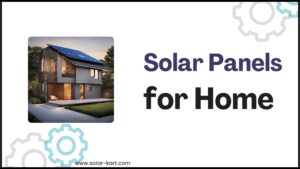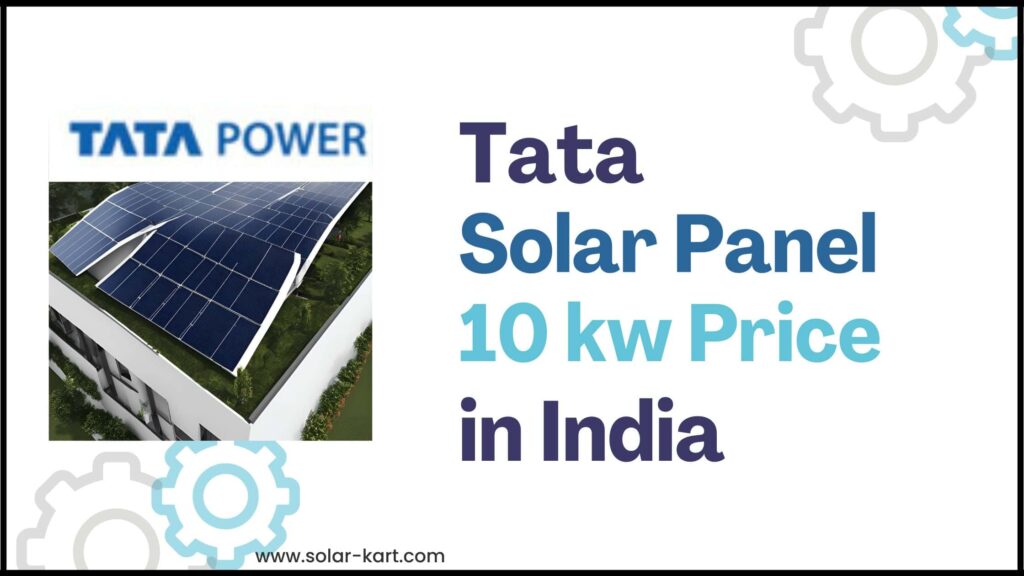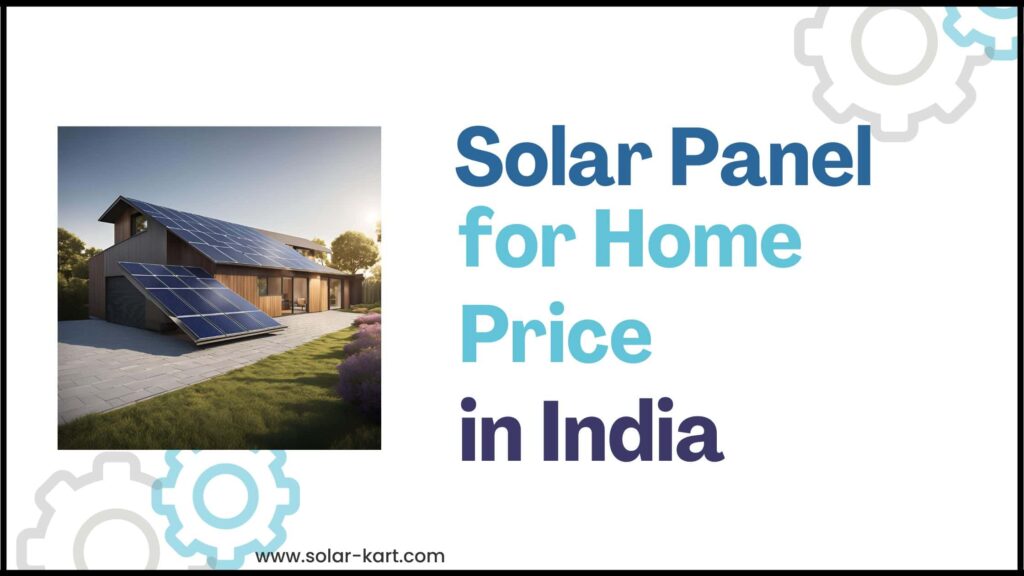Are you thinking about switching to solar panels for home? Great decision! Solar energy is not only a smart way to save money, but it’s also a fantastic way to help the environment. Don’t worry if it all seems a bit complicated—I’m here to make things simple. In this blog post, we’ll walk through everything you need to know about solar panels for home, step by step.
Why Should You Choose Solar Panels for Home?
Let’s discus it—electricity bills can be expensive. But by installing solar panels, you can generate your own electricity from sunlight. This means less reliance on the grid and more savings for you. Here are some reasons why solar panels for home make sense:
- Save Money on Electricity Bills
Once your solar panels are installed, they start generating electricity. This can reduce your bills significantly because you’ll be using your own power. - Government Incentives
Many governments offer financial incentives like subsidies or tax credits to homeowners who install solar panels. These programs can help lower the initial costs. And make it easier for you to install solar. - Environmentally Friendly
Solar energy is a clean, renewable energy source. If you use solar panels, then you reduce the need for fossil fuels. Which is used for producing electricity. Which means less pollution and a smaller carbon footprint. - Increased Home Value
Solar panels can increase the value of your home. Buyers are often attracted to homes with lower energy costs and eco-friendly features.
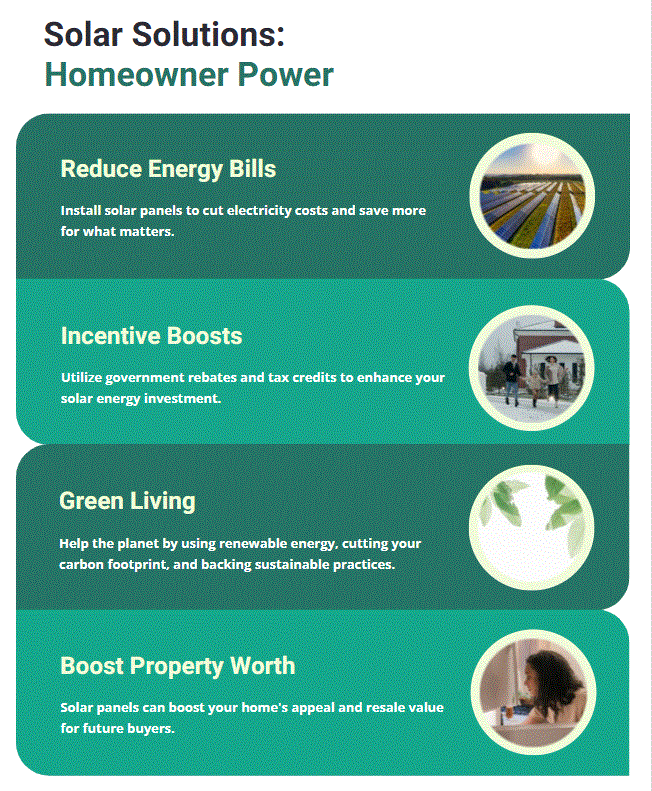
How Do Solar Panels Work?
Solar panels convert sunlight into electricity. They use photovoltaic (PV) cells to absorb sunlight and turn it into direct current (DC) electricity. This is then converted into alternating current (AC) by an inverter, which is the type of electricity used in your home.
Here’s how it works:
- Step 1: Sunlight hits the solar panels.
- Step 2: The PV cells generate DC electricity.
- Step 3: An inverter changes the DC into AC electricity.
- Step 4: The AC electricity powers your home.
- Step 5: If you produce more energy than you use, it can either be stored in batteries or sent back to the grid.
Types of Solar Panels for Home
There are different types of solar panels you need to know before buying a solar panel for your home:
| Type | Efficiency | Cost | Ideal For |
|---|---|---|---|
| Monocrystalline Panels | High | Higher | Homes with limited roof space |
| Polycrystalline Panels | Medium | Moderate | Budget-friendly option |
| Thin-Film Panels | Low | Lower | Large roofs, flexible needs |
1. Monocrystalline Solar Panels:
These are the most efficient but also the most expensive. They’re a great option if you have limited roof space because they generate more electricity per panel.
2. Polycrystalline Solar Panels:
These panels are slightly less efficient than monocrystalline but are more affordable. They’re a good middle-ground option if you want efficiency without the high price tag.
3. Thin-Film Solar Panels:
These are the least efficient but are lightweight and flexible. If you have a large roof and don’t mind needing more panels to meet your energy needs, thin-film could be a good option.
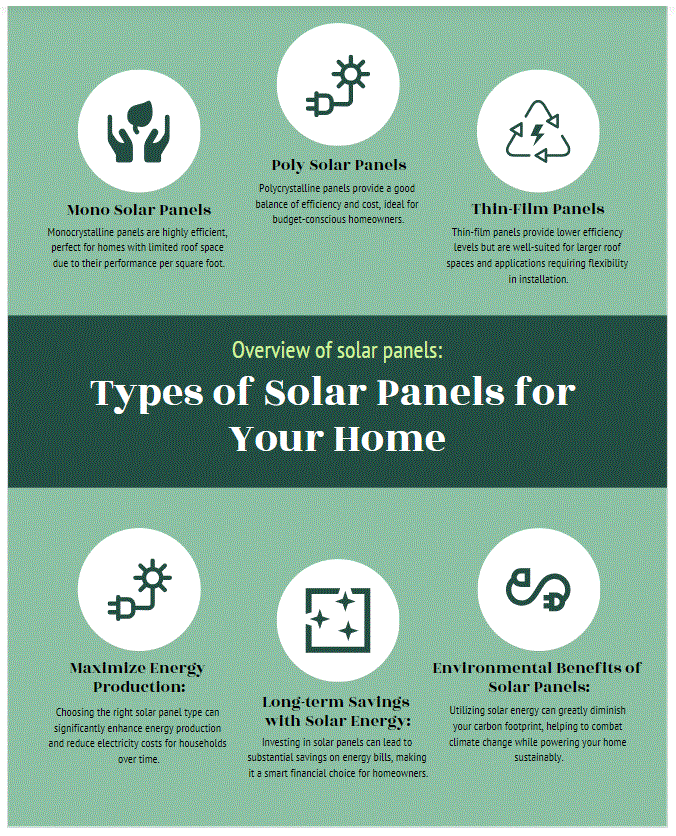
Costs and Installation
The cost of installing solar panels for home can vary, but the investment often pays for itself over time through lower electricity bills. Here’s a quick table to give you an idea of what to expect:
| System Size | Estimated Cost | Energy Production (per day) |
|---|---|---|
| 3 kW | ₹1,50,000 – ₹2,00,000 | 12-15 units |
| 5 kW | ₹2,50,000 – ₹3,50,000 | 20-25 units |
| 10 kW | ₹4,50,000 – ₹6,00,000 | 40-50 units |
These costs are just estimates and can vary depending on where you live, the type of solar panels you choose, and installation costs. Remember, government subsidies can help reduce these prices.
How to Choose the Right Solar Panel for Your Home
Now that you know the types of solar panels and costs. Now how do you choose the right one for your home? Ok It all depends on your specific needs. Here are a few things to understand:
- Your Energy Usage: At first you need to know how much electricity do you use each month? This will determine how many panels you’ll need.
- Roof Space: Do you have a large or small roof? Monocrystalline panels are more efficient, so they’re ideal for smaller spaces.
- Budget: Ask yourself what’s your budget? Polycrystalline panels offer a good balance of efficiency and affordability. If you have lower budget then you should go for this.
- Sunlight Exposure: You will have to also know much direct sunlight does your roof get? The more sunlight, the more efficient your panels will be.
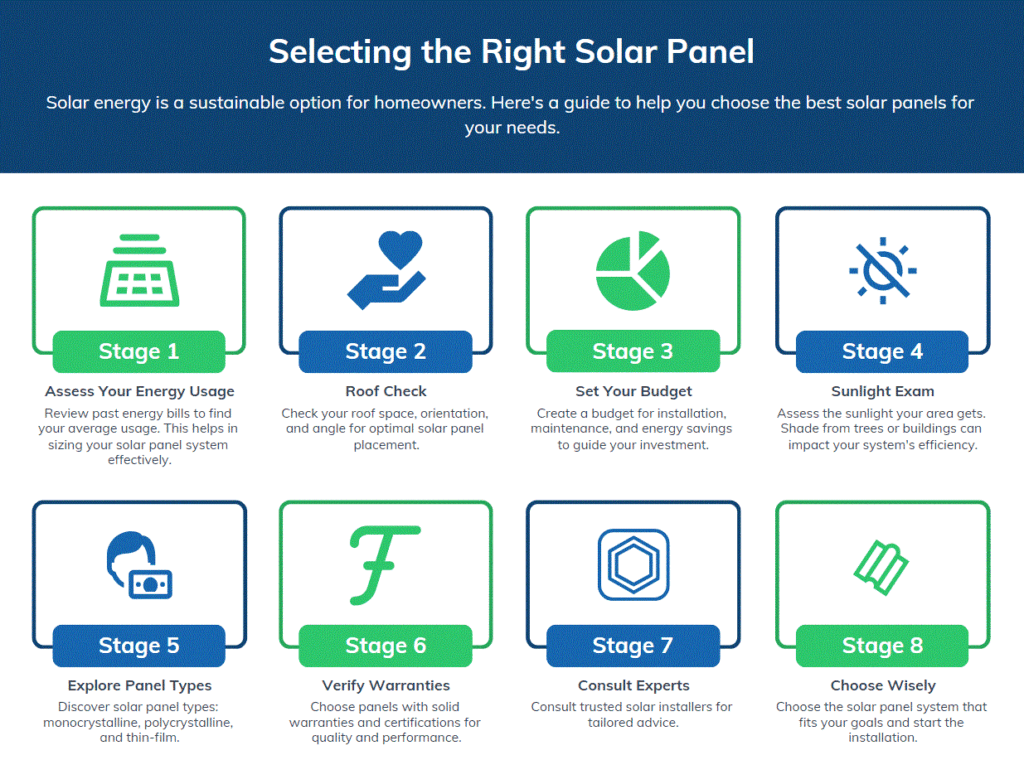
Conclusion
Solar panels for home are a fantastic investment. They help you save on electricity bills, reduce your carbon footprint, and even increase your home’s value. Plus, with government incentives and lower costs, there’s never been a better time to go solar. Whether you’re just exploring the idea or ready to make the switch, I hope this guide has made it a bit easier for you to understand how solar panels can work for your home.
So, what do you think? Ready to take the first step toward a cleaner, greener, and more cost-effective energy solution? Solar panels for home could be the answer you’ve been looking for!
FAQs
Let’s go over some common questions you might have about installing solar panels for home:
1. How long do solar panels last?
Solar panels generally last 25 to 30 years. They require very little maintenance during this time.
2. Can solar panels power my entire home?
Yes, solar panels can generate enough electricity to power your entire home, depending on the size of the system and your energy usage.
3. What happens on cloudy days?
Solar panels still work on cloudy days, but their efficiency is lower. However, they continue to generate power as long as there’s daylight.
4. Do I need a battery for my solar panels?
Batteries are optional. They store excess electricity for use during the night or cloudy days. If you don’t have a battery, any extra electricity can be sent back to the grid.
5. Can I sell extra electricity back to the grid?
Yes, many areas allow you to sell excess electricity back to the grid through a process called net metering. This can help you save even more money.

